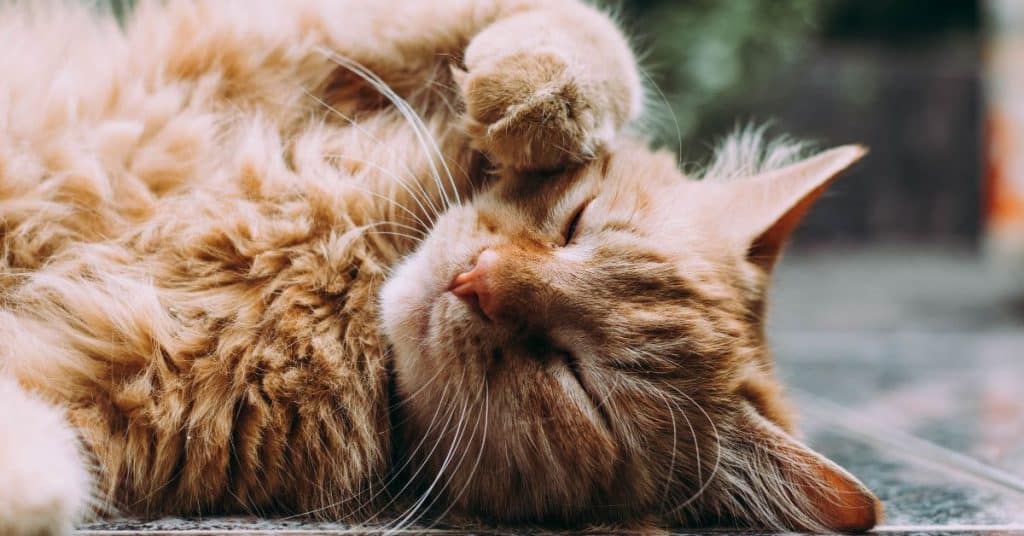Many people in the world have a cat. If you are one of them, you probably know that cats require a lot of care. Pet nutrition involves cat food, water, and exercise; they also need dental care. Many owners think they can get these things for their cats by using cat vitamins and supplements. But you should know how much vitamin c to give a cat.
The question is: Are cat vitamins and supplements necessary? Some people think it is unnecessary to give your cat these things because they don’t provide any benefits to your feline friend’s health. Others say that giving your cat these things is vital because, without them, their health may suffer as well as their behaviour.
This article discusses vitamin C, their benefits to cats, and the dosage an owner should consider when administering it to their pet.
Let’s begin!
The Need for Cats for Vitamin C
Cats are carnivores, and their diet consists of meat, other animal-based products, and vitamin supplements. As a result, they need to have vitamin A, C, D, E, K, B12, and folic acid in their diet. While vitamins are essential to these pets, vitamin deficiencies are among their most common health problems. These are caused by a lack of variety in the cat’s diet and frequent exposure to toxins.
Vitamin C, also known as ascorbic acid and ascorbate, is a vitamin found in foods and dietary supplements. It is used to prevent and treat scurvy. It is a vital nutrient that helps fix tissue and aid your body’s enzymatic ability.
Vitamin C is the most abundant and most effective vitamin for cats. Cats can benefit from vitamin C in many ways, the most popular being its use as an antioxidant. Cats, unlike dogs, have a higher need for Vitamin C and require a higher amount than would be needed by dogs. Hence, it would be beneficial to your cat’s overall well-being if you give it supplements that carry Vitamin C.
What is Vitamin C, and How Do They Help Animals Like Cats?
Vitamin C is a water-soluble vitamin that helps animals in many ways. It helps them fight diseases and infections while preventing iron depletion in their blood. This vitamin is also an antioxidant, which means it can protect cell structures from oxidative damage. It is also essential for the body to function correctly, but it can be challenging to get enough of it from food alone. In the past, Vitamin C was found in food sources, but now it’s supplemented into diets through pills and supplements.
The benefits of vitamin C go well beyond preventing scurvy for them.
- Due to its antihistamine properties, vitamin C relieves allergy symptoms by counteracting histamine and reducing inflammation.
- The antioxidant vitamin C plays a vital role in your pet’s health. For their coats to remain healthy and lustrous, they require calcium. The combination of vitamin C and E ensures they retain their vibrant appearance.
- Boosting the immune system naturally is one of the benefits of vitamin C. As it absorbs into the body, vitamin C increases the number of antibodies that fight bacteria, viruses, and toxins.
- Your pet’s interferon level increases when vitamin C is given, a natural antibody that helps to fight viral infections and cancerous growths.
- Pets produce collagen as a result of vitamin C. Among its many functions, collagen promotes the health of joints and bones in pets. Degenerative joint disease and hip dysplasia can be prevented in pets with adequate collagen levels in their bodies.
- Urine acidification can sometimes be helped with vitamin C. Talk to your veterinarian if you think your pet needs acid urine. Excess vitamin C in the diet may facilitate the formation of bladder stones and crystals, such as calcium oxalate.

Forms and Sources of Vitamin C for Cats
Many animals, such as cats, are fed a diet that doesn’t include enough Vitamin C. This can cause the immune system to weaken, which can make it more difficult for them to fight off disease. Some forms of Vitamin C and their sources include:
Ascorbic Acid
Ascorbic acid, the naturally occurring form of vitamin C, is an antioxidant that helps maintain the entire body’s health by protecting cells from oxidative stress. It may also help to defend against some types of cancer, improve immune function and boost the activity of other antioxidants.
Ascorbyl Palmitate
Ascorbyl palmitate is a naturally occurring fatty acid in nature in plants and animals. It is an oil-soluble nutrient found in many foods and acts in unison with antioxidants to support overall mental function and the ability to keep cells healthy. It is one of the most common forms of Vitamin C. This vitamin can be found in various foods.
Calcium Ascorbate
Calcium Ascorbate is a naturally occurring compound considered a “miracle mineral” and has been used for centuries. It can have various benefits such as anti-ageing, anti-cancer, blood sugar control, and more. Thought to be the most gentle, this form of vitamin C is readily absorbed anywhere in the intestinal tract of most mammals. Sources of calcium ascorbate include milk products, fish, and many fruits and vegetables.
Ester C Calcium Ascorbate
Ester C is an excellent product for those wanting to get their daily dose of vitamin C. It contains the highest quality, proven safe and effective ingredients—vegan, gluten-free, soy-free, peanut-free, and non-GMO. A non-acidic form of vitamin C contains neutral pH and won’t cause tummy trouble.
Sodium Ascorbate
Sodium ascorbate is a critical component that helps to reduce the appearance of scars and stretch marks. It also helps prevent them from returning by increasing collagen production, which makes up scar tissue. Studies have shown that this kind of vitamin C is easier to digest and stays in your system 2x as long as the acid form. There are more than a few supplements for cats with sodium ascorbate deficiencies. Most of these supplements come in powder form, but some come in liquid form or capsules.
What is the Recommended Daily Allowance of Vitamin C for a Cat?
The recommended daily allowance for a cat is about 0.5 grams of Vitamin C. Cats are typically ok to take between 150mg and 500mg of vitamin C a day. They also require a range of other nutrients to live a healthy life, including iron and zinc, which can be found in various foods such as beef, whole grains and green vegetables. This may also be helpful in their Vitamin C-oriented diet.
- A daily dose of 250mg is correct for most small dogs, cats, or puppies.
- Medium-sized dogs or cats need about 500mg of vitamin C daily to stay healthy.
- Large ones should receive around 750mg of Vitamin C per day.
Precautions and Side Effects of Ascorbic Acid for Cats
The use of ascorbic acid by a veterinarian is generally safe and effective. However, some animals may experience untoward effects from the intake of ascorbic acid. Those animals with hypersensitivity or allergies to ascorbic acid should not be treated with the drug.
The body can rapidly break down and eliminate ascorbic acid in the urine because it’s water soluble. However, if too much ascorbic acid is consumed, calculi can form in the kidneys, and, in rare instances, anaemia can occur. It is also possible for your pet to get diarrhoea from too much vitamin C. On the other hand, if they have too little vitamin C, they won’t benefit as much.
Your pet’s age usually determines its size and how much vitamin C they need. You may want to discuss the appropriate dosage with your veterinarian if you plan to introduce vitamin C supplements into their diet.
In case you need clarification, contact your veterinarian.
Conclusion
Giving your cat Vitamin C is a great way to ensure their diet is balanced. This can help your feline friend fight off common diseases and maintain healthy teeth. Too much vitamin C in these foods can give your pet diarrhoea.
Your pet’s age and size determine how much vitamin C they need. Because of this, it’s essential to ensure your pet has the right amount each day. Your pet on a vitamin C supplement may benefit their health, but you should talk to your vet about the best dosage.
